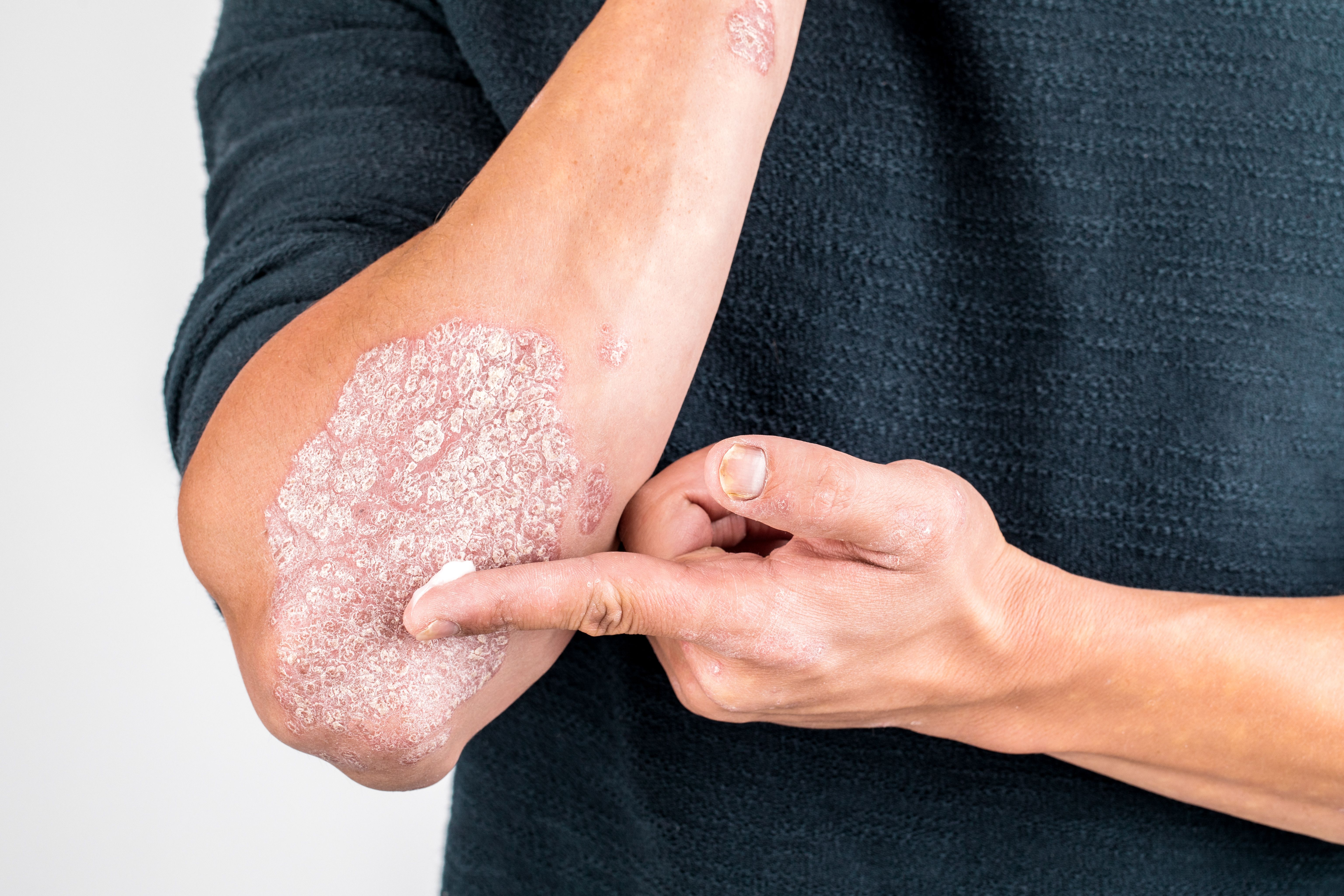- Case-Based Roundtable
- General Dermatology
- Eczema
- Chronic Hand Eczema
- Alopecia
- Aesthetics
- Vitiligo
- COVID-19
- Actinic Keratosis
- Precision Medicine and Biologics
- Rare Disease
- Wound Care
- Rosacea
- Psoriasis
- Psoriatic Arthritis
- Atopic Dermatitis
- Melasma
- NP and PA
- Skin Cancer
- Hidradenitis Suppurativa
- Drug Watch
- Pigmentary Disorders
- Acne
- Pediatric Dermatology
- Practice Management
- Prurigo Nodularis
- Buy-and-Bill
Article
A comparison of plaque psoriasis biologics and biosimilars
Author(s):
Switching from originator to biosimilar shows no significant impact on drug survival in plaque psoriasis, but outcomes differ, researchers report.
A new report in the British Journal of Dermatology shows that ustekinumab is associated with the highest drug survival of newly approved biosimilars and newer biologics prescribed for moderate-to-severe psoriasis.
Danish researchers compared the safety, efficacy and time to drug survival between biologics adalimumab, etanercept, infliximab, secukinumab and ustekinumab. They also compared the biosimilar Benepali to its originator etanercept (Enbrel/Amgen) and compared the biosimilar Remsima with infliximab (Remicade/(Janssen Biotech).
While ustekinumab was the highest performer in terms of drug survival, secukinumab was the lowest. However, secukinumab had the highest number of patients who achieved a complete resolution of psoriasis plaques (PASI 100), but these patients were also among those who had the most frequent adverse events (predominantly infections). Secukinumab also showed a small increase in cardiovascular events as compared to other agents.
Originators and biosimilars of infliximab or etanercept were described as having no difference in drug survival. It was common for patients to receive treatment at dosages that were higher than the recommended dosages, except for adalimumab and secukinumab.
"Switching from originator to biosimilar had no significant impact on drug survival, and the safety profiles were comparable. Adverse events occurred most frequently with secukinumab. Future studies are warranted to assess the long-term safety of novel biologics for psoriasis," researchers wrote in the November 1 issue of the journal.
Data for the study was based on the DERMBIO registry which follows all patients in Denmark who have moderate-to-severe psoriasis and were treated with biologics between January-March 2007.
The final analysis included 2,161 patients who were treated with adaliimumab (1,332 patients), ustekinumab (1,055 patients), etanercept (579 patients), infliximab (333 patients), and secukinumab (196 patients)
The researchers stated that studies are needed to assess long-term safety.
REFERENCE
A, Ottosen MB, Gniadecki R, et al. "Safety, efficacy, and drug survival of biologics and biosimilars for moderate-to-severe plaque psoriasis," British Journal of Dermatology. Nov. 1, 2017 Epub. DOI:10.1111/bjd.16102.






